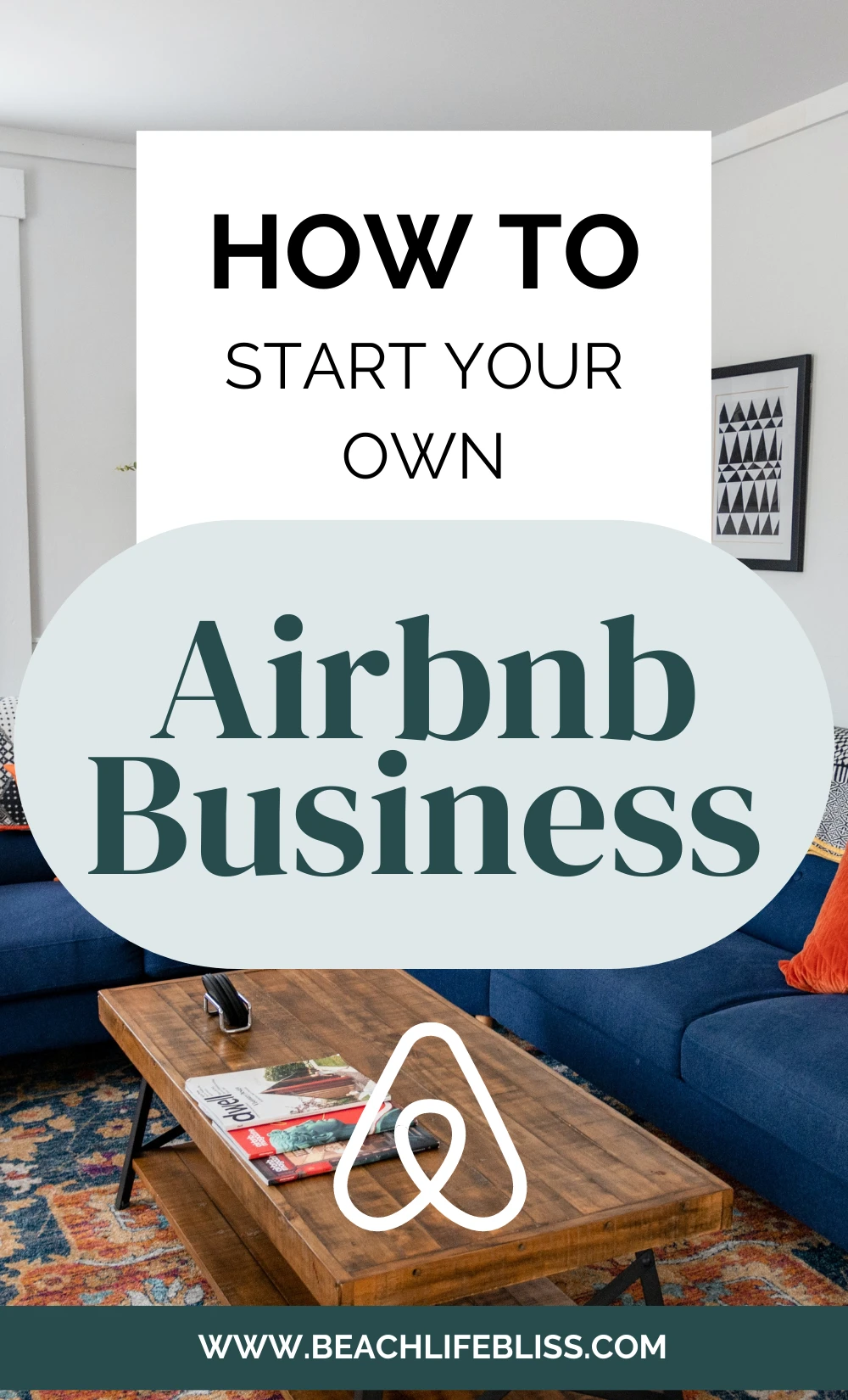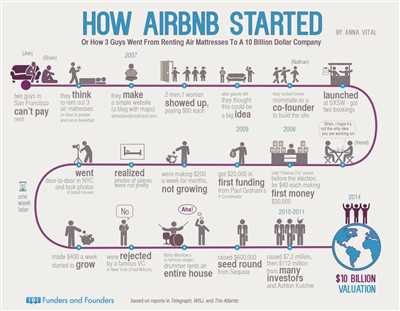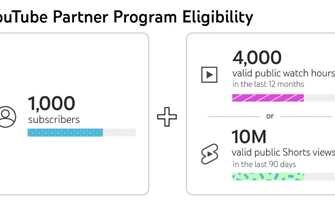
If you’re considering starting an Airbnb, there are a few important things to note. The first is that having a clear understanding of the legalities and laws within your location is crucial. Depending on where you’re located, there may be specific laws and regulations that you’ll need to be aware of before listing your property on Airbnb. It’s always a good idea to do thorough research or consult with a legal professional to ensure that you’re within the bounds of the law.
Once you have a grasp on the legalities, let’s dive into the tips for starting a successful Airbnb. One of the most important considerations is the location of your property. The location will greatly impact the demand and potential revenue of your Airbnb. Consider what tourists or travelers look for in a location and choose a spot that meets those expectations. Whether it’s a bustling city center or a serene beachside retreat, find a location that will appeal to your target audience.
Next, you’ll want to make sure that your property is in tip-top shape. The cleanliness and presentation of your Airbnb can make all the difference in attracting guests and receiving positive reviews. Take the time to thoroughly clean the space, provide essential amenities such as fresh linens and toiletries, and make any necessary repairs or improvements.
Another essential aspect of starting an Airbnb is setting the right price for your listing. Research similar listings in your area to get a sense of the going rates. It’s important to be competitive with your pricing, while still considering the unique features and amenities that your property offers. Offering a fair price will help attract more guests and ultimately increase your revenue.
When it comes to creating your Airbnb listing, take the time to craft accurate and enticing descriptions. Highlight the unique features of your property and its location to give potential guests a clear picture of what they can expect. High-quality photos are also important and can greatly impact a guest’s decision to book. Consider hiring a professional photographer or at least investing in a good camera to capture your space in the best possible light.
Lastly, be aware of any taxes or regulations that may apply to hosting an Airbnb. Depending on your country or region, you may be required to pay taxes on the income you earn through Airbnb. In the UK, for example, the HMRC has specific rules and requirements for Airbnb hosts. Make sure you understand and comply with any tax laws to avoid any potential penalties or legal issues.
Starting an Airbnb can be a rewarding and lucrative venture if you do it right. By taking the necessary precautions and being mindful of legalities, providing top-notch accommodations, and setting competitive prices, you’ll be well on your way to becoming a successful Airbnb host. So, get ready to break into the industry, make some extra income, and welcome guests into your home!
- 10 Tips for Running a Successful Airbnb Property
- How does Airbnb work
- What are the legal considerations of running an Airbnb business
- What taxes will I need to pay
- What insurance will I need to host on Airbnb
- What UK and local laws do I need to be aware of if I list on Airbnb
- What property legalities and safety precautions should I be aware of
- How much can an Airbnb make
- How to Set Airbnb Nightly Price as a Host
- Airbnb Seasonality
- Airbnb Location
- Airbnb Business Revenue Potential
- Airbnb Business Annual Revenue Per Unit
- Steps to Starting a Successful Airbnb Business
- Prepare Your Airbnb Listing
- Note
- Improve Your Host Rating
- Videos:
- How to Start Your Airbnb Business in 2023
10 Tips for Running a Successful Airbnb Property
If you’re considering starting an Airbnb property, there are some important considerations to keep in mind. These 10 tips will guide you through the process and help set you up for success:
- Know your local market: Research the demand and supply in your area to determine if there is a need for another Airbnb listing.
- Set realistic expectations: Be aware of what you can offer guests and set your prices accordingly. Make sure your property’s descriptions accurately reflect what guests can expect.
- Consider the location: The location of your property will greatly affect the number of bookings you’ll receive. Take into account factors such as proximity to attractions, public transportation, and local amenities.
- Work with Google: Utilize Google and other online sources to gather information about your potential guests, the competition, and the industry as a whole. This will help you make informed decisions.
- Take precautions: Be aware of the liability and legal obligations that come with hosting guests in your property. Consider getting proper insurance coverage and be familiar with local regulations.
- Set a minimum nightly price: Depending on the area and the type of property you have, it’s important to set a minimum nightly price to ensure you’re covering your costs and making a profit.
- Market your property: Use online platforms, social media, and other marketing channels to promote your Airbnb listing and attract potential guests.
- Provide top-notch amenities: Make sure your property is well-equipped with essential amenities such as comfortable beds, clean linens, Wi-Fi, cable TV, and more. The more desirable your amenities, the better chance you have of attracting bookings.
- Stay up-to-date with the industry: Keep an eye on industry trends, new regulations, and best practices. This will help you stay competitive and adapt your strategies as needed.
- Work with a reputable cleaning service: Cleanliness is of utmost importance to guests. Consider hiring a professional cleaning service to ensure your property is always in pristine condition.
By following these tips, you’ll be well on your way to running a successful Airbnb property. Remember to continuously assess and improve your listing to stay ahead of the game in this dynamic and fast-growing industry.
How does Airbnb work
When considering to start an Airbnb, it’s essential to understand how the platform works. Here’s a guide to help you navigate through the process:
1. Creating a listing: To open your unit for bookings, you first need to create a listing on Airbnb. Provide accurate descriptions of your property and upload appealing photos to attract potential guests.
2. Setting the price: You have full control over the nightly rental prices for your listing. The prices can vary depending on the season, local market, and other factors you may want to consider.
3. Bookings: Guests can search for accommodations on Airbnb by entering their desired location, travel dates, and other preferences. If your listing matches their search criteria, they may book your property for the specified dates.
4. Communication: Once a booking is made, you should be in touch with the guests to answer any questions they may have and provide them with necessary information about check-in, house rules, and other expectations.
5. Payments: Airbnb handles the payment process, so you don’t have to worry about collecting payments directly from guests. The platform charges guests at the time of booking and pays you the rental amount (minus Airbnb fees) usually within 24 hours after the guests’ check-in.
6. Legal considerations: Make sure you are aware of the laws and regulations around short-term rentals in your country or local area. Some places have specific rules regarding Airbnb hosting, taxes, and permits that you should comply with. Doing proper research and understanding the legal requirements is crucial for a smooth Airbnb venture.
7. Listing protection: Airbnb provides certain protection programs for hosts. For example, the Host Guarantee may offer coverage for damages caused by guests, and the Host Protection Insurance can help with liability claims. Familiarize yourself with these protections to ensure you’re covered in case of any unforeseen incidents.
Remember that while Airbnb can be a profitable business, it requires effort and dedication. Having a well-maintained listing, responding promptly to guest inquiries, and providing a pleasant experience can help you grow your Airbnb venture.
What are the legal considerations of running an Airbnb business
When starting an Airbnb business, there are important legal considerations that hosts need to be aware of. Depending on the country, state, or even city you’ll be operating in, there may be specific laws and regulations you’ll need to comply with.
One of the first considerations is the legality of short-term rentals in your area. Some cities have implemented laws that restrict or prohibit Airbnb rentals, so it’s important to research the regulations in your specific location before starting your business. This can be done through online search or by contacting local authorities.
Another legal consideration is taxation. Since Airbnb income is considered as earning money from a rental property, hosts are typically required to pay taxes on the income they earn from bookings. Hosts should consult with a tax professional or accountant to understand their tax obligations and determine the best way to pay taxes.
Liability is also something to take into account. As an Airbnb host, you’ll be welcoming guests into your property, so it’s essential to have adequate insurance coverage. Airbnb offers a Host Protection Insurance program, but hosts should check if their specific circumstances require additional coverage to protect themselves against any potential claims or damages.
In addition to legalities, there are also certain rules and regulations set by Airbnb itself that hosts must adhere to. These include providing accurate descriptions and pictures of their rental unit, setting fair and reasonable prices, maintaining a high rating through positive guest reviews, being responsive to guest inquiries, and respecting guest privacy.
Furthermore, hosts should be aware of any seasonal or market trends that may affect their bookings. Depending on the location and time of year, there may be a high demand for short-term rentals, allowing hosts to earn more income. It’s important to understand the local market and adjust pricing and availability accordingly.
In conclusion, starting an Airbnb business requires hosts to be aware of and comply with various legal considerations. From understanding local laws and regulations to ensuring proper insurance coverage, hosts must navigate the legal landscape to operate their business successfully and responsibly.
What taxes will I need to pay
When starting an Airbnb, it is important to understand the tax implications that come along with it. As a host, you will need to pay various taxes depending on your location and the income you generate from your rental property.
First and foremost, you should consider the income tax that will be applicable on the revenue you earn from your Airbnb bookings. This will be determined by the tax laws of your country, so it is important to consult with a tax professional or visit the website of your local tax authority, such as HMRC in the UK or the IRS in the US, to understand your obligations.
In addition to income tax, there may be other taxes that you will need to pay, such as property taxes or local occupancy taxes. These can vary depending on where your property is located, so it is important to do your research and understand the specific tax requirements in your area.
Furthermore, it is important to note that there may be certain deductions or allowances that you can take advantage of as an Airbnb host. For example, you may be able to deduct expenses such as cleaning fees or utility bills related to your rental property. Again, consulting with a tax professional is recommended to ensure that you are taking full advantage of any available deductions.
When determining the price per night for your Airbnb listing, it is important to factor in these tax obligations. You should also consider any additional costs associated with running an Airbnb, such as insurance or maintenance expenses. It’s always a good idea to set your prices accordingly, taking into account not only your desired revenue but also these additional expenses.
Another important consideration is the seasonal nature of Airbnb bookings. Depending on the location and time of year, there may be times when your property is in high demand and you can charge higher prices, while there may be slower periods where you need to lower your prices to attract bookings. Understanding seasonality can help you maximize your revenue throughout the year.
It’s worth noting that having a good understanding of local laws and regulations is crucial when starting an Airbnb. Some cities have specific rules and restrictions around short-term rentals, and failing to comply with these regulations can result in fines or legal issues. Make sure to check with your local municipality or housing authority to ensure that you are in compliance with all applicable laws.
Lastly, it is important to maintain proper records and documentation of your Airbnb income and expenses. This will not only help you stay organized for tax purposes but also provide protection in case of any audits or disputes with guests. Keeping track of your financial records, including bookings, payments, and expenses, can be crucial in maintaining a successful and legally compliant Airbnb business.
In conclusion, starting and running an Airbnb can be a lucrative and rewarding experience, but it is important to be aware of the various taxes and legal obligations that come with it. By understanding your tax obligations, taking proper precautions, and consulting with professionals when necessary, you can ensure that your Airbnb business grows successfully while staying on the right side of the law.
What insurance will I need to host on Airbnb
When you start hosting on Airbnb, it’s important to be aware of the insurance requirements and options available to you. Insurance can provide protection for your property and help cover potential liability risks. In this guide, we’ll look at the different types of insurance you may need as an Airbnb host and how to determine the coverage that’s right for you.
One of the first things you’ll need to do is check with your insurance provider to see if they offer coverage for short-term rentals. Some insurance companies offer specific policies to accommodate hosting on platforms like Airbnb. If your current provider doesn’t offer this type of coverage, you may need to consider switching to a company that does.
When determining the type of insurance you’ll need, consider the following:
1. Liability Insurance:
Having liability insurance is essential as it provides coverage if a guest is injured while staying at your property. This type of insurance will help protect you financially in the event of any lawsuits or medical expenses.
2. Property Insurance:
Property insurance is crucial to protect your property from potential damages caused by events like fire, water damage, or even break-ins. It’s important to review your policy to ensure it covers short-term rentals and that the coverage amount is suitable for your needs.
3. Renter’s Insurance:
If you’re renting your space, check with your landlord to see if they require you to have renter’s insurance. This type of insurance will cover your personal belongings in case of theft or damage.
4. Business Interruption Insurance:
This type of insurance can be helpful if your rental property becomes unavailable due to unforeseen circumstances, such as a natural disaster or a fire. It can help cover your loss of income while your property is being repaired or until you’re able to accept bookings again.
Don’t just rely on your insurance provider’s advice, it’s always a good idea to do some extra research and consult other sources to get a complete understanding of what insurance you should have. Access forums and websites, read articles from experienced hosts, speak to other hosts who have been successful, or even consider hiring an insurance professional with expertise in short-term rentals.
Remember, your insurance needs may vary depending on factors such as your location, the type of property, the number of rooms you’ll be renting, and the length of stays. It’s crucial to align your insurance coverage with the specific risks associated with hosting on Airbnb.
To determine the appropriate insurance coverage, start by looking at your business’s revenue and growth trends. Consider how much revenue you expect to generate from your Airbnb bookings. If you’re just starting or have only been running your Airbnb for a few months, it may be difficult to determine an accurate revenue figure. In that case, consider factors such as the number of bookings you’ve had and the average nightly price for your unit.
Reviews can also play a significant role in determining the level of insurance coverage you’ll need. Positive reviews indicate that guests have had a good experience, reducing the likelihood of incidents. On the other hand, negative reviews can highlight potential risks that should be addressed or accounted for in your insurance coverage.
Another important consideration is the external factors that may affect your insurance needs. For example, if you’re in an area prone to natural disasters like earthquakes or hurricanes, you may need additional coverage. Research local trends and historical data to understand the risks associated with your location.
Lastly, always be aware of your tax obligations when considering insurance. Depending on your jurisdiction and local laws, you may need to pay taxes on your Airbnb revenue. Consult with a tax professional to understand your obligations and ensure you’re compliant with the tax laws in your area.
In conclusion, having the right insurance coverage is an essential part of being a successful Airbnb host. It not only protects your property and finances but also provides peace of mind. By considering the factors discussed in this guide and doing the necessary research, you can make an informed decision about the insurance coverage that best fits your needs as an Airbnb host.
What UK and local laws do I need to be aware of if I list on Airbnb
When starting an Airbnb venture in the UK, it is important to be aware of and comply with the relevant laws and regulations. This will ensure a successful and legally secure rental arrangement.
Firstly, as a host, you should be aware of the legal requirements for renting out your property in general. You will need to check if your property is suitable for short-term rental accommodation and if you need any specific permissions or licenses to do so. Contacting your local council can help you understand the rules and regulations that apply to your area.
Secondly, you need to be aware of the specific laws related to Airbnb in the UK. One of the key legal considerations is tax. Any income you earn from hosting on Airbnb is subject to taxation. You should register with HMRC and accurately report your income from renting out your property. It is important to keep proper records and declare your earnings accordingly.
Insurance is another important consideration when listing on Airbnb. You should review your existing home insurance policy to ensure it covers short-term rentals and consider obtaining additional coverage specifically tailored to the Airbnb market. This will provide protection against property damage, theft, and liability claims.
Safety is a top priority for Airbnb hosts. As such, you need to comply with fire safety regulations, ensuring that the property has appropriate fire detection systems and escape routes. It is also advisable to have a safety manual or guide for guests, detailing emergency procedures and important contact information.
When listing your property on Airbnb, you need to provide accurate and detailed descriptions, along with high-quality photos. The property should be accurately represented to potential guests, so they know exactly what to expect. Keep in mind that misleading descriptions and photos can lead to negative reviews and can damage your reputation as a host.
Seasonality and pricing are important factors to consider. The rental market can experience seasonal fluctuations, and you should adjust your prices accordingly. Keep an eye on trends in your area and consider other factors such as local events or holidays that may affect demand and pricing.
It is also important to remember that Airbnb is not exempt from local laws and regulations. Some cities or regions may have additional restrictions on short-term rentals, and you should be familiar with these rules before listing your property. Failure to comply with local regulations can result in fines or legal consequences.
In addition, you should be aware of the terms and conditions set by Airbnb itself. Familiarize yourself with the platform’s policies, including cancellation policies, guest reviews, and the rating system. Following these guidelines will help you maintain a positive rating and attract more guests.
Finally, having a clear understanding of the legal requirements and considerations for running an Airbnb listing will help you be a successful host. It is always a good idea to consult with legal professionals or experts in the industry to ensure you are fully compliant with all relevant laws and regulations.
| Quick Considerations: |
|---|
| 1. Check local laws and regulations for short-term rentals in your area. |
| 2. Register with HMRC and accurately report your rental income. |
| 3. Review your insurance policy and consider additional coverage for Airbnb. |
| 4. Comply with fire safety regulations and provide a safety manual for guests. |
| 5. Provide accurate descriptions and photos of your property. |
| 6. Adjust pricing according to seasonality and local market trends. |
| 7. Be aware of any additional restrictions or regulations in your area. |
| 8. Familiarize yourself with Airbnb’s terms and conditions. |
| 9. Consult legal professionals or industry experts for guidance. |
What property legalities and safety precautions should I be aware of
When starting an Airbnb, there are important property legalities and safety precautions that every writer should be aware of. Before you look into listing your property on Airbnb, it’s crucial to understand and comply with the regulations in your area.
Here are some key steps to consider:
| 1. | Check with local authorities |
| 2. | Determine if your property is suitable |
| 3. | Get the necessary permits and licenses |
| 4. | Review insurance options |
| 5. | Provide a safe and secure environment |
| 6. | Set realistic expectations |
| 7. | Take high-quality pictures and write accurate descriptions |
Before considering hosting on Airbnb, there are several legal considerations you should keep in mind. Some common legal requirements include registering with local authorities, obtaining necessary permits or licenses, and paying taxes. It’s also important to note any specific regulations or restrictions that may be in place in your area, such as zoning laws or home-sharing regulations.
In addition to legal protection, it’s essential to prioritize safety precautions for both you and your guests. This includes making sure your property is equipped with smoke detectors, fire extinguishers, and first aid kits. It’s also a good idea to install security measures, such as locks on windows and doors, to provide a secure environment. Having proper insurance coverage is crucial in case of any damages or accidents.
When setting prices for your Airbnb, consider market trends and seasonality. Prices can vary significantly depending on factors such as location, demand, and accommodation size. It’s also important to be aware of how much you’ll earn after deducting fees and expenses.
Successful Airbnb hosts understand that providing excellent service is key to growing their business. This includes being responsive to inquiries and bookings, maintaining a clean and well-prepared accommodation, and ensuring a comfortable stay for guests. Encouraging guests to leave reviews will not only help you attract more bookings but also give potential guests an idea of what to expect.
Starting an Airbnb can be a quick and lucrative way to earn extra income, but it’s important to be diligent and adhere to legal and safety requirements throughout the process. By following these steps and staying informed on any updates or changes in the industry, you can be well-prepared to enter the market and enjoy a successful venture.
How much can an Airbnb make
When it comes to determining how much revenue you can generate from an Airbnb listing, there are several factors to consider. One of the most important factors is the location of your property. The demand for accommodations can vary greatly depending on the area, and this will have a significant impact on your potential income.
Reviews are another important aspect to consider. The more positive reviews you have, the more likely guests are to book your unit. Guests often rely on reviews to determine whether a listing is accurate and if the host is reliable. So, it’s essential to consistently provide a great guest experience and maintain your listing accurately.
Having a high occupancy rate is crucial for maximizing your income. If your listing is available for rent throughout the year, you have a greater opportunity to generate revenue. However, it’s also important to consider seasonal fluctuations in demand and adjust your prices accordingly.
There are legalities and precautions in place for Airbnb hosts. It is vital to be aware of the legal requirements in your area and ensure you comply with them. Some areas have regulations and restrictions on short-term rentals, so it’s essential to understand the rules and regulations in your jurisdiction.
In addition to legal requirements, safety is paramount when hosting guests. Take steps to improve the safety of your property, such as installing smoke detectors, fire extinguishers, and carbon monoxide alarms. Providing a safe and comfortable environment is crucial for guest satisfaction and positive reviews.
The quality of your listing also plays a significant role in attracting guests and generating income. High-quality photos and accurate descriptions can make a big difference in enticing potential guests to book your accommodation. So, invest time in creating an appealing listing that accurately represents your space.
It’s important to set realistic expectations for your Airbnb income. While some hosts are able to generate a significant amount of money, others may only make a modest income. The amount you can earn will depend on factors such as location, size of the property, and the demand in your market. It’s also worth noting that income can vary throughout the year, with some seasons being more profitable than others.
Ultimately, the success of your Airbnb venture is in your hands. By being aware of the potential market in your area, setting competitive prices, and providing an outstanding guest experience, you can maximize your revenue and grow your business. But always remember that having an Airbnb is more than just making money; it’s about providing a unique and enjoyable experience for your guests.
How to Set Airbnb Nightly Price as a Host
When starting an Airbnb venture, one of the most important aspects to consider is how to set the nightly price for your accommodation. Setting an accurate price will ensure that you attract bookings and earn a fair revenue for your effort and investment.
To determine the right nightly price for your Airbnb, it is essential to consider several factors. First, you should analyze the rental market in your area. Look at the prices of other Airbnb listings in your neighborhood and note any trends or seasonal variations. This research will help you understand what guests are willing to pay for similar accommodations.
Another consideration is the cost of running your Airbnb. Take into account expenses such as utilities, cleaning fees, and any necessary repairs or upgrades. It is also recommended to have insurance coverage to protect yourself and your property from any unforeseen incidents.
Depending on your location, there may be legalities to be aware of. Some cities or countries have laws and regulations regarding short-term rentals. Make sure you are familiar with these laws and follow any required procedures or obtain any permits or licenses.
When setting the price, keep in mind the expectations of potential guests. Consider the amenities and features your accommodation offers and compare them to similar listings in your area. If your property has unique qualities or extras, you may be able to charge a premium for them.
Additionally, take note of any seasonal or event-driven fluctuations in demand. For example, if your property is located in a tourist destination, you may want to charge higher prices during peak travel seasons. On the other hand, if you expect low demand during certain months, consider offering discounted rates to attract bookings.
Once you have gathered all the necessary information, you can start setting your nightly price. Airbnb provides hosts with a suggested price range based on market data and trends. This data can be a useful starting point, but it’s important to manually review and adjust the price to align with your specific circumstances.
Keep in mind that setting the right price is a balancing act. It is essential to find a rate that is competitive and attractive to potential guests while also ensuring that it covers your costs and allows for a reasonable profit. Regularly reviewing and adjusting the nightly price based on market changes and guest feedback can help you stay competitive and maximize your earning potential.
In conclusion, setting the right nightly price for your Airbnb requires careful consideration of various factors, such as market trends, expenses, legalities, and guest expectations. By doing thorough research and following industry best practices, you can create a pricing strategy that aligns with your goals and helps you succeed in the Airbnb business.
Airbnb Seasonality
When running an Airbnb business, it’s important to be aware of the seasonality within the industry. Understanding the seasonal trends can greatly impact your revenue and bookings. Here are 10 tips to help you make the most out of each season:
- Be aware of local laws and regulations: Before you list your property on Airbnb, make sure you’re familiar with the laws and regulations in your area. This will help you avoid any legal issues or fines.
- Prepare your property: Make sure your property is well-maintained and all amenities are in working order. Guests value cleanliness and comfort, so make sure everything is up to par.
- Take high-quality photos: Photos are one of the most important factors in attracting guests. Invest some time and effort into taking high-quality photos that accurately showcase your space.
- Set competitive prices: Do some research and see what similar listings in your area are charging. Set your prices accordingly to attract guests while still making a profit.
- Considerations for pricing: Be aware of peak seasons and adjust your prices accordingly. During high-demand periods, you can increase your prices to maximize revenue.
- Improve your listing’s search rating: Work on improving your listing’s search ranking by optimizing your title, description, and tags. This will help you appear higher in search results and attract more potential guests.
- Take precautions with guests: When accepting reservations, always screen guests and consider their reviews and ratings. This will help ensure a positive guest experience and protect your property.
- Keep up with industry trends: Stay updated on the latest trends in the Airbnb industry. This can help you stay ahead of the competition and make informed decisions for your business.
- Invest in insurance: Having insurance coverage for your property is important in case of any damage or accidents. It’s better to be safe than sorry.
- Don’t underestimate the power of word-of-mouth: Encourage your guests to leave reviews and recommend your Airbnb to others. Positive reviews can greatly enhance your reputation and attract more bookings.
By following these tips and considering the seasonality of the Airbnb market, you can run a successful and profitable Airbnb business throughout the year.
Airbnb Location
When starting an Airbnb business, one of the key considerations is the location of your property. The right location can make or break your success as an Airbnb host.
If you want to attract more guests and earn higher prices, you need to find a location that has a high demand for Airbnb rentals. Research the market in your area to see what types of properties are available and what they’re charging per night.
Consider seasonal factors as well. Some locations may experience a high number of bookings during certain times of the year, while others may have a more consistent demand throughout the year. Adjust your prices and availability accordingly to maximize your earning potential.
It’s also important to consider the legal and safety considerations of your chosen location. Research the laws and regulations governing short-term rentals in your country or area. Ensure that you have all the necessary permits and insurance coverage to operate legally.
When creating your Airbnb listing, provide detailed descriptions and high-quality pictures of your property and its surroundings. Highlight any unique features or amenities that set your property apart from others in the area.
Work on improving the safety and comfort of your space. Take precautions such as installing smoke detectors, fire extinguishers, and carbon monoxide detectors. Ensure that all necessary amenities, such as cable and Wi-Fi, are available for your guests.
Consider the location of your property within your chosen area. Is it close to popular attractions, public transportation, or business districts? These factors can greatly impact the demand for your listing.
Lastly, prepare yourself for the day-to-day operations of managing an Airbnb business. Be responsive to guest inquiries and bookings, and provide a high level of customer service. Keep an eye on industry trends and adjust your strategies accordingly to stay competitive.
By following these tips and considerations, you can increase your chances of having a successful Airbnb business. Remember, the location is a crucial factor in attracting guests and ensuring their satisfaction.
Airbnb Business Revenue Potential
When it comes to starting an Airbnb business, the potential for quick and substantial revenue is something that many hosts find appealing. However, it’s important to note that the income you can expect will depend on various factors, such as location, seasonality, and market demand.
One of the key sources of revenue for Airbnb hosts is through nightly rental prices. It’s important to set your prices competitively, taking into account the expectations of guests in your area. Research comparable listings in your area to get an idea of what other hosts are charging and what guests are willing to pay.
Another way to improve your revenue potential is by creating a unique and desirable listing. High-quality photos and compelling descriptions will attract more guests and potentially allow you to charge higher prices. It’s also important to highlight any unique features or amenities your accommodation offers.
To run a successful Airbnb business, you’ll need to be aware of the legalities and local regulations in your area. Some cities may have specific requirements or restrictions for short-term rentals, so it’s essential to do your research and ensure that you’re operating within the law.
Guest reviews are another important aspect of your Airbnb revenue potential. Positive reviews can attract more bookings and improve your overall rating, which can lead to higher prices and more guests. Providing excellent customer service and ensuring your guests have a great experience will help you receive positive reviews.
Seasonality is an important factor to consider in your revenue projections. Some locations may have high demand during certain times of the year, such as vacation seasons or major events. Understanding the seasonal patterns in your market can help you prepare and optimize your prices accordingly.
It’s also worth noting that Airbnb hosting can be a part-time or full-time business, depending on your goals and availability. Some hosts may choose to rent out a spare room in their own home, while others may invest in additional properties solely for Airbnb purposes.
When it comes to taxation, it’s important to be aware that you’ll need to report Airbnb income and pay any applicable taxes. Be sure to consult with a tax professional or research the tax laws in your country to understand your obligations.
In conclusion, starting an Airbnb business can have significant revenue potential. By carefully managing your listings, prices, and guest experience, you can maximize your income and create a successful hosting business.
Airbnb Business Annual Revenue Per Unit
When starting an Airbnb business, one of the key considerations is determining the price for renting out your unit. However, it’s important to do your research and take several factors into account to ensure you’re making a profitable venture.
Firstly, you need to consider the location of your accommodation. Depending on where you’re located, the prices for renting out an Airbnb unit can vary significantly. It’s important to analyze the trends and average prices in your area to determine a competitive rate.
Another important factor to consider is the laws and legalities surrounding Airbnb hosting in your country or area. Different jurisdictions may have different regulations, and it’s crucial to be aware of these laws and ensure compliance to avoid any complications or penalties.
Furthermore, the quality and attractiveness of your listing can greatly impact your revenue. Providing accurate and appealing pictures of your rooms and amenities can attract more guests and result in higher bookings. Taking precautions, such as having a fire protection plan in place, since safety is paramount.
To grow your Airbnb business and increase revenue, you may want to consider factors such as the number of nights you expect to have guests, the demand in your area, and the typical prices during different times of the year. Researching industry trends and improving your hosting experience can help you make informed decisions and maximize your earnings.
According to sources, the annual revenue per unit for Airbnb hosts can vary greatly depending on various factors. Some hosts may make a few thousand dollars a year, while others can earn much more. It all boils down to the location, the number of guests, the duration of bookings, and the overall demand in the area.
In the UK, for instance, according to a study by Tyndall Investment Management, the average host earns around $3,800 per year. However, this figure can vary significantly depending on the location and size of the unit, as well as the quality of the listing and the experience provided by the host.
In conclusion, starting an Airbnb business can be a lucrative venture, but it’s important to carefully consider all the factors mentioned above. Doing thorough research, understanding the legalities, and taking steps to improve your listing and hosting experience can greatly contribute to your annual revenue per unit and your overall success in the Airbnb industry.
Steps to Starting a Successful Airbnb Business
Starting an Airbnb business can be a lucrative venture if done right. Here are some steps to help you get started:
| Step 1 | Research the laws and regulations for hosting in your local area. Make sure you understand the legal requirements and any restrictions that may apply. |
| Step 2 | Know how to attract guests by creating accurate and appealing listings. Take great photos and write detailed descriptions to showcase your property in the best possible way. |
| Step 3 | Set a price for your rental based on factors such as location, amenities, and demand. Considerations should include nightly and monthly rates, as well as any additional fees for extra guests or cleaning. |
| Step 4 | Ensure the safety and security of your guests by adhering to the minimum requirements set by Airbnb, such as having smoke detectors, fire extinguishers, and adequate insurance coverage. |
| Step 5 | Market your Airbnb through various channels, including your own website, social media, and online travel platforms. Use targeted advertisements to reach your desired audience. |
| Step 6 | Provide exceptional customer service to your guests. Respond promptly to inquiries and address any concerns they may have. Aim to maintain high ratings and positive reviews. |
| Step 7 | Manage your bookings efficiently, keeping track of availability and coordinating check-ins and check-outs. Consider using software or apps that can help streamline the process. |
| Step 8 | Stay updated on tax laws and regulations related to Airbnb income. Depending on your location, you may need to report and pay taxes on the revenue you earn from hosting. |
| Step 9 | Continuously improve your listing by incorporating guest feedback and staying informed about industry trends. Regularly update your photos and descriptions to keep them accurate and appealing. |
| Step 10 | If you’re considering running your Airbnb business full-time, make sure to budget accordingly. Take into account not only the revenue you can earn but also the expenses you’ll incur. |
Starting and running a successful Airbnb business requires careful planning, attention to detail, and dedication. By following these steps and considering the various factors involved, you can increase your chances of success in the growing market of short-term rentals.
Prepare Your Airbnb Listing

When starting an Airbnb venture, the first step is to prepare your listing. Since it’s the first thing potential guests will see, your listing should be well-written and visually appealing. Here are some tips to help you improve your Airbnb listing and make it more successful.
1. Location: Considerations such as safety, local laws, and seasonality should be taken into account when determining the best location for your Airbnb. Depending on where you are located, there may be minimum annual hosting requirements or taxes to pay, so be sure to research the laws and regulations in your country.
2. Listing details: Provide accurate information about your listing, such as the number of rooms available, the type of accommodation, and any unique features or amenities. Be transparent about what guests can expect during their stay.
3. Pricing: Set your prices accordingly based on market trends, seasonality, and your own expectations. You can also offer discounts for longer stays or increase prices during peak times. Remember to factor in any additional costs such as cleaning fees or security deposits.
| Tips for Improving Your Listing |
|---|
| 1. High-quality photos: Invest in professional photos to showcase your space and make it more appealing to potential guests. |
| 2. Detailed descriptions: Provide thorough and accurate descriptions of your space and amenities to set proper expectations for guests. |
| 3. Positive reviews: Encourage guests to leave reviews and respond to them promptly. Positive reviews can greatly impact your listing’s rating and attract more bookings. |
| 4. Availability calendar: Keep your calendar up to date to avoid double bookings and show potential guests when your space is available. |
Remember that running a successful Airbnb listing takes work. Be responsive to guest inquiries, provide a great experience during their stay, and always strive to improve. By following these steps, you can start your own venture and earn additional income through Airbnb.
Note
When starting an Airbnb, there are a lot of things to consider. Here are some important factors to keep in mind:
- Look for a good location for your listing. Having a property in a popular area can attract more guests and increase your earning potential.
- Do thorough research on local laws and regulations. Depending on where you’re located, there may be specific legalities and requirements for Airbnb hosts.
- Have the appropriate insurance coverage. You’ll want to protect your property and yourself from any liability.
- Consider your target guests and tailor your listing accordingly. Take high-quality pictures of your space and highlight its unique features to attract potential guests.
- Be aware of the expectations of Airbnb guests. Providing a clean and comfortable accommodation, along with a welcoming and enjoyable experience, will earn you positive ratings and reviews.
- Make sure you understand what Airbnb’s cancellation policy is and what you can expect in terms of bookings and income.
- If you want to make your Airbnb a full-time venture, have a solid plan for growth and sustainability.
- Consider hiring a local property manager to handle day-to-day operations, especially if you’re not available on-site.
- Take safety precautions seriously. Install fire alarms, provide safety instructions, and have proper emergency procedures in place.
- Stay informed about market trends and adjust your pricing and availability according to demand.
Remember, starting an Airbnb business requires effort and careful planning. It’s important to do your research, have a clear understanding of the laws and regulations in your area, and provide a positive and safe experience for your guests. Good luck!
Improve Your Host Rating
If you want to become a successful Airbnb host, it’s important to continuously improve your host rating. A high host rating can help attract more guests and increase your earning potential. Here are some steps you can take to improve your host rating:
| 1. Provide accurate descriptions and pictures: | Make sure your property descriptions and pictures accurately represent the space. Guests should have a clear understanding of what to expect when booking. |
| 2. Set a reasonable price: | Research the prices of similar listings in your area and set a competitive but reasonable price. Guests are more likely to book if they feel they’re getting a good deal. |
| 3. Maintain cleanliness: | Ensure your space is clean and tidy for each guest. Take proper precautions, such as sanitizing surfaces and washing linens, to provide a comfortable and hygienic environment. |
| 4. Respond promptly: | Be responsive to guest inquiries and booking requests. Guests appreciate hosts who reply quickly and provide helpful information. |
| 5. Be a good host: | Go above and beyond to make your guests feel welcome and comfortable. Provide amenities such as Wi-Fi, cable TV, and basic toiletries, depending on what’s listed and expected. |
| 6. Follow local laws and regulations: | Make sure you’re aware of and comply with any laws or regulations that may apply to hosting in your area. This includes obtaining any necessary licenses or permits. |
| 7. Address guest concerns: | If a guest contacts you with a concern or issue, respond promptly and work towards a resolution. Taking care of guest needs can help prevent negative reviews. |
| 8. Keep up with maintenance: | Regularly inspect your property and address any maintenance issues. This will ensure that everything is in good working order for your guests. |
| 9. Consider seasonal changes: | Adjust your prices and availability according to seasonal demand. This will help you maximize your earnings during peak times and attract more bookings. |
| 10. Continuous improvement: | Regularly assess and improve your hosting skills. Stay updated on new Airbnb features and best practices to provide a great guest experience. |
By following these steps and continuously striving to enhance your hosting skills, you can improve your host rating and build a successful Airbnb business.









